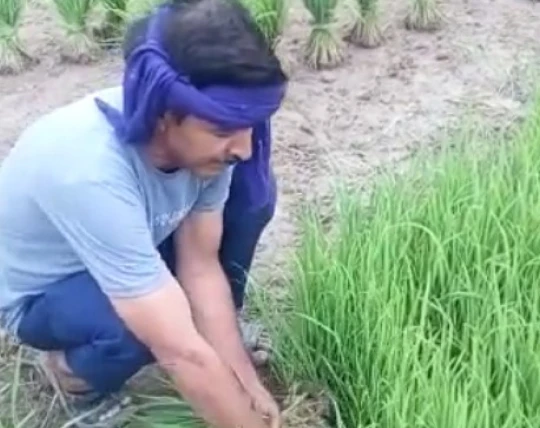Our farmers from Balrampur, Uttar Pradesh cultivate a variety of organic and sustainably grown crops like Organic Basmati, Flaxseeds, Wheat, Pulse, Lentils etc… which are then fine-graded and checked for quality assurance before distribution.


Balrampur is a city located on the banks of the Rapti River and serves as the district headquarters of Balrampur district in Uttar Pradesh, India. It was established on May 25, 1997, after the division of Gonda district. The district shares its borders with Siddharth Nagar and Shrawasti districts to the east and west, respectively, while Gonda district lies to its south. The northern side of the district is shared with Nepal.
Organic Farms of Balrampur, Uttar Pradesh
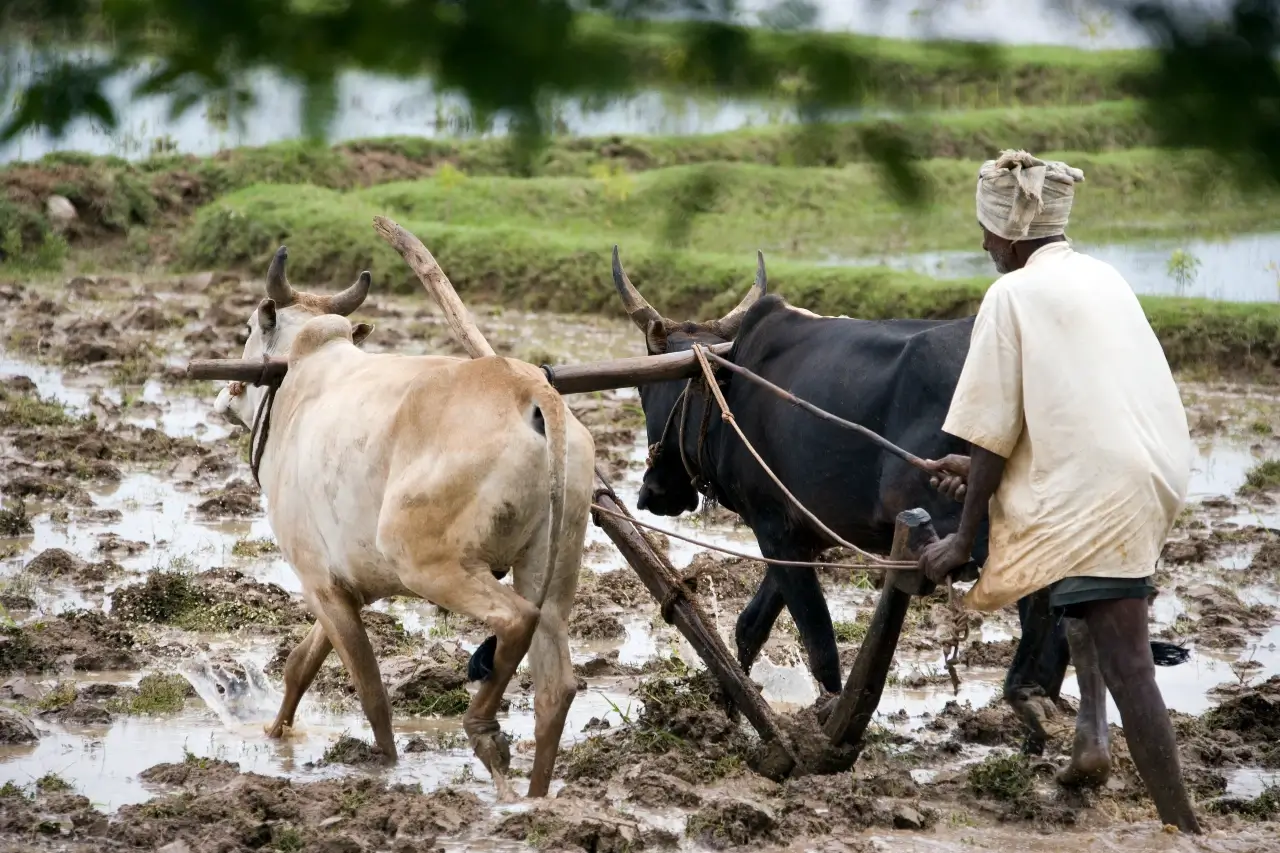

Location of the Project
The NBF Balrampur project is located on the bank of the Rapti River is the district headquarters.
Coordinates – Balrampur is located at 27.43°N 82.18°E.

Social Certification

Fairtrade Certified Balrampur Project
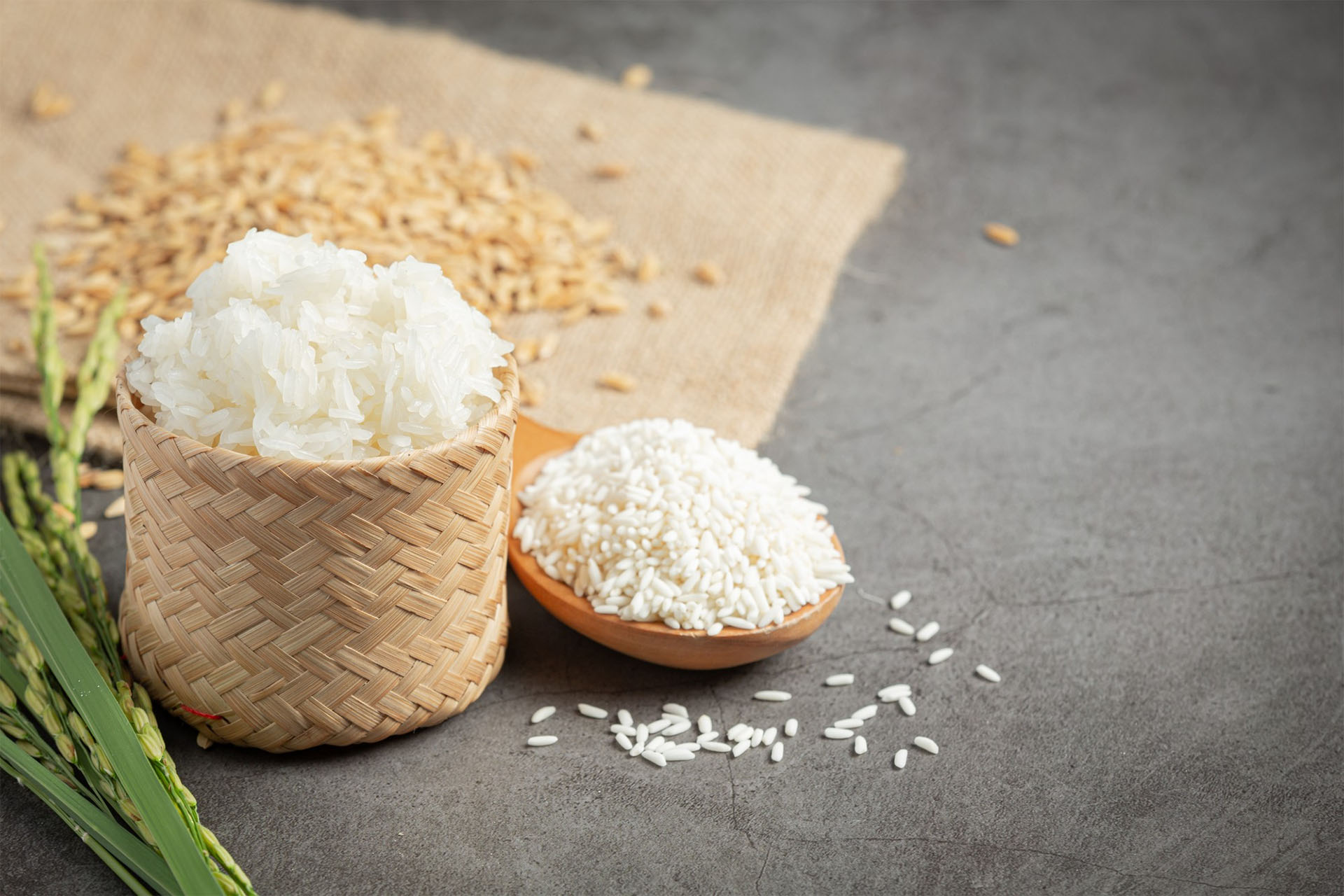
Nature Bio Foods’ Balrampur project is Fairtrade certified allowing workers and farmers to earn fairer prices for their organic crops, and have control over their futures. Our Balrampur project aligns with Fairtrade’s approach to empowering farmers and workers to have greater control over their lives and invest in their future. We fully support Fairtrade’s standards and associated norms, and we’re proud to integrate them into our business practices.
When you see the FAIRTRADE Mark on our products, you can trust that we’ve met internationally agreed-upon standards that have been independently verified. At NBF, we prioritize fairness and ethical practices in all aspects of our business, and our commitment to Fairtrade is an essential part of that.
We believe in empowering farmers and workers at NBF, which is why they have a strong voice at every level of trade. From managing their farms to contributing to our discussion forums, we’re dedicated to providing an equal platform for everyone. Our adherence to Fairtrade’s principles is not just about compliance; it’s a core value that guides our business.
Fairtrade is more than just a certification at NBF; it’s a way of doing business that puts people first. We’ve followed Fairtrade practices and implemented measures that provide better prices and working conditions for farmers and workers. By doing so, we’re helping to create a fairer deal for those who work hard to produce our products.
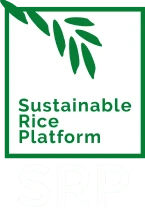
Sustainable Rice Platform
SRP Certified Balrampur Project
Nature Bio Foods, a leading organic food company, has taken steps to address the challenges faced by the global rice sector through the Sustainable Rice Platform (SRP). As a member of SRP, Nature Bio Foods is committed to promoting sustainable rice production practices that enhance food security, support rural livelihoods, and mitigate climate change impacts.
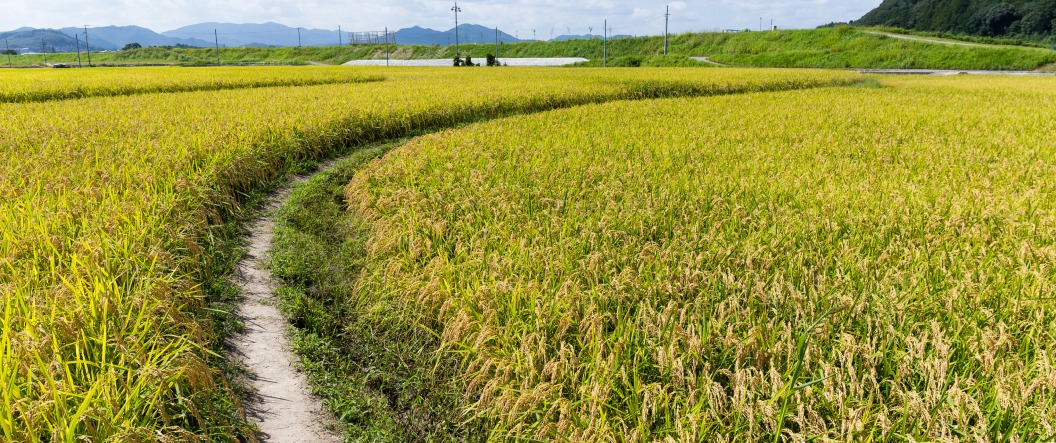
In its Balrampur project, Nature Bio Foods is working with smallholder farmers to adopt SRP’s practices. By promoting sustainable farming methods such as direct-seeded rice, the company aims to reduce water usage and greenhouse gas emissions while maintaining or improving crop yields. Additionally, through training and capacity building, Nature Bio Foods is empowering women farmers and promoting gender equality in the agriculture sector.
Nature Bio Foods’ approach to sustainable rice production not only benefits the environment but also supports the livelihoods of smallholder farmers. By enabling farmers to adopt sustainable practices and access premium markets for their produce, the company is helping to increase their income and build resilient communities.
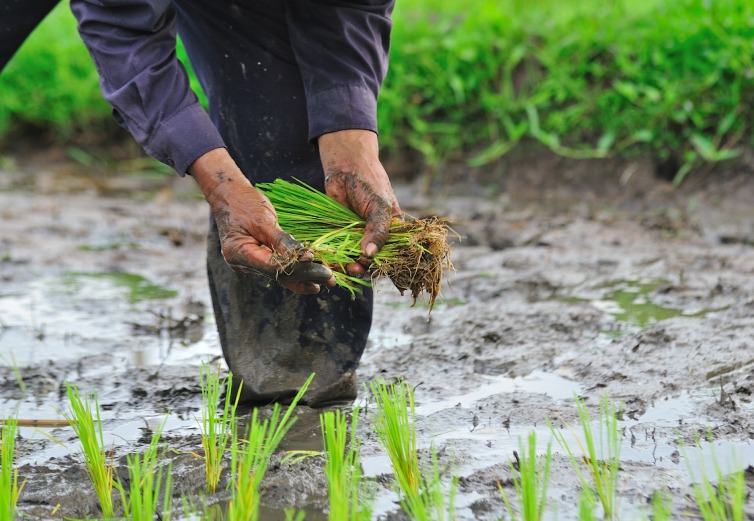
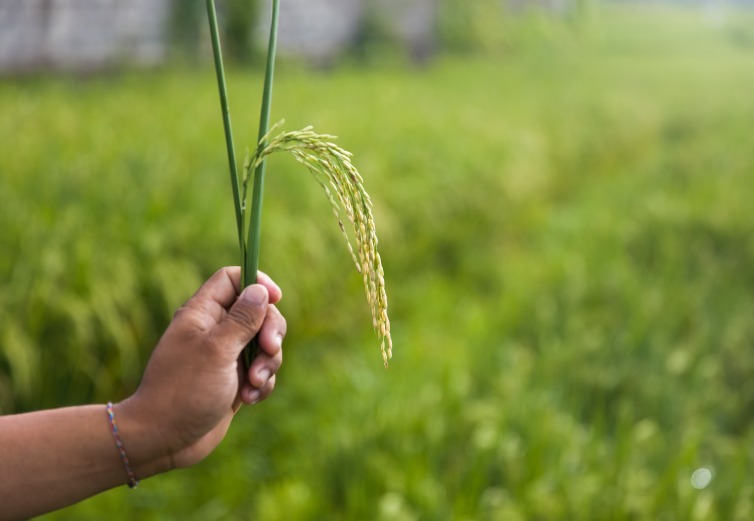
Balrampur Project Certified By Biosuisse Organic and Naturland

Nature Bio Foods (NBF) is committed to promoting organic farming practices that benefit both farmers and the environment. In our project in Balrampur, we enable Biosuisse Organic by providing farmers with the necessary knowledge, training, and resources to comply with Biosuisse’s rigorous organic farming standards. We work closely with farmers to implement organic farming techniques that promote soil health, conserve biodiversity, and reduce the use of synthetic inputs. By enabling Biosuisse Organic, we help farmers in Balrampur to cultivate high-quality, organic produce that meets the demands of consumers who value healthy, sustainable food options.

Nature Bio Foods’ Balrampur project proudly holds Naturland certification, strengthening the commitment to organic agriculture and fostering the prosperity of smallholder farmers. Naturland certification is attainable even for low-acreage farmers, and they work with producer associations that incorporate numerous individual producers. By working with Naturland, NBF is enabling smallholder farmers to adopt sustainable and organic farming practices while gaining access to premium markets for their produce. NBF’s partnership with Naturland not only benefits the environment but also supports the livelihoods of smallholder farmers. By promoting sustainable and organic agriculture, NBF is helping to increase the income and resilience of farmers, while also contributing to global efforts towards a more sustainable food system.
Organic Farms of Balrampur, Uttar Pradesh
Balrampur is a city located in the Indian state of Uttar Pradesh. It is known for its rich cultural heritage, with several historical monuments and temples. The city is also a major center for the sugar industry, with several sugar mills located in the region. Agriculture is a significant contributor to the local economy, with farmers growing crops such as rice, wheat, and sugarcane. In recent years, Balrampur has emerged as a hub for organic farming, with several companies and organizations working to promote sustainable and eco-friendly agriculture practices in the region. In the north of the district is situated the Shivalics ranges of the Himalayas which is called the Tarai Region.
Agricultural Characteristics
Soil Profile

The project area has primarily two types of soil – “Matiyar” or clay and “Dumat” or loam. The Matiyar soil, which is a hard clay soil, is highly fertile and ideal for rice cultivation. On the other hand, the Dumat or loam soil is also fertile and suitable for various types of crops. As a result of the fertile soil types in the project area, the crop yields are high, making it an ideal location for agriculture.

Dumat or loam: Dumat or loam soil, found in the project area, is fertile and well-suited for a variety of crops. It provides a balanced combination of clay, silt, and sand particles, allowing for good water drainage and nutrient retention.

Matiyar Soil: Matiyar soil, on the other hand, is a hard clay soil known for its high fertility, making it an excellent choice for rice cultivation. Both soil types contribute to the project area’s agricultural success and high crop yields.
Climate Condition
Balrampur district is located in the northern Indian state of Uttar Pradesh, which comes under the northwestern Plain zone. The district has a subtropical climate, with high temperature variation between summer and winter. The temperature varies from around 5°C in winter to 43°C in summer. The maximum rainfall occurs in July and August. Hot waves occur in May and cold waves occur in January. The average annual rainfall in the district is around 1100mm. The forest cover in the district is around 18.15% of the total geographical area, which is dominated by northern tropical mixed types of forest. There is wide variation in soil, topography, climate, and habitat, which makes the district unique and contributes to the variability in flora and fauna. The district is also known for its rich horticulture heritage and genetic diversity.
Temp.
Minimum

5°C
(Dec-Jan)
Maximum

43°C
(May-June)
Humidity
Relative Humidity

89%
Rainfall
Average Rainfall

1100 mm (Average)
Seasons
There are mainly three seasons.

Summer
(Mar-June)

Rainy
(July-Sep)

Winter
(Oct-Feb)
Farm Water Availability
Water availability for farming in Balrampur district mainly relies on rainfall, as most farmers do not have access to canal irrigation water. However, a limited number of farmers have access to canal water which comes from the Chitourgarh and Kohargaddy dams. Additionally, some farmers rely on tube wells for water supply, which can be either privately or government-owned.
Nature of Farmers
The farmers in Balrampur project area are known for their cooperative nature and their willingness to adopt new and innovative farming techniques that can help them reduce their production costs and increase their incomes. While many of the farmers may have limited formal education and may not have easy access to electronic media, a new generation of farmers is emerging that is embracing technology and using smartphones to access information and resources to improve their farming practices. Despite these changes, the farming community in Balrampur remains deeply rooted in traditional practices and cultural values, which continue to shape the local agricultural landscape.

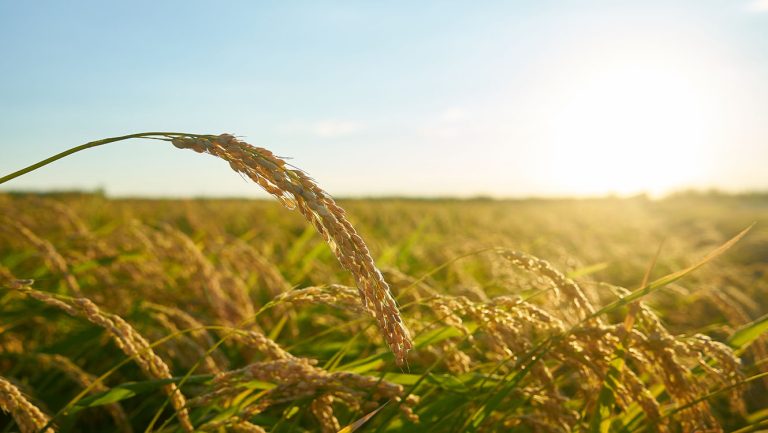

Growing Conditions
The Rice-Wheat cropping system is predominant in the region, with average rice yields between 2600-2900 kg/ha and wheat yields between 2800-2950 kg/ha. The Kharif season sees the cultivation of rice, maize, pigeon pea, and moong bean crops. In the post-rainy (Rabi) season, residual soil moisture is utilized to grow crops such as wheat, lentil, mustard, pigeon pea, sesame, and groundnut with one or two supplemental irrigations. The growing period lasts between 180-210 days per year, and with irrigation, a third crop can be taken during summer. Sugarcane is an important cash crop in the region due to the favorable climate.
Crop Details
During the Kharif season, farmers in the Balrampur region typically grow a variety of crops including basmati rice, Kalanamak rice, and hybrid varieties of rice along with maize and green pea. In the Rabi season, the main crops cultivated are wheat, pulses such as lentils, flaxseed, coriander, and other related crops.
Rabi
- Wheat
- Mustured
- Lentil
- Flexseed
- Coriander
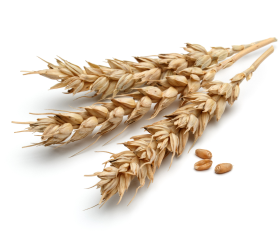
Kharif
- Non-Basmati
- Kala Namak paddy
- Basmati paddy
- Peagon pea
- Maize
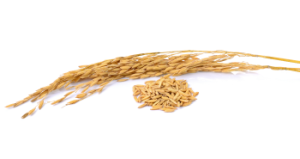
Statistics
NBF Supply Chain

NBF Supply Chain
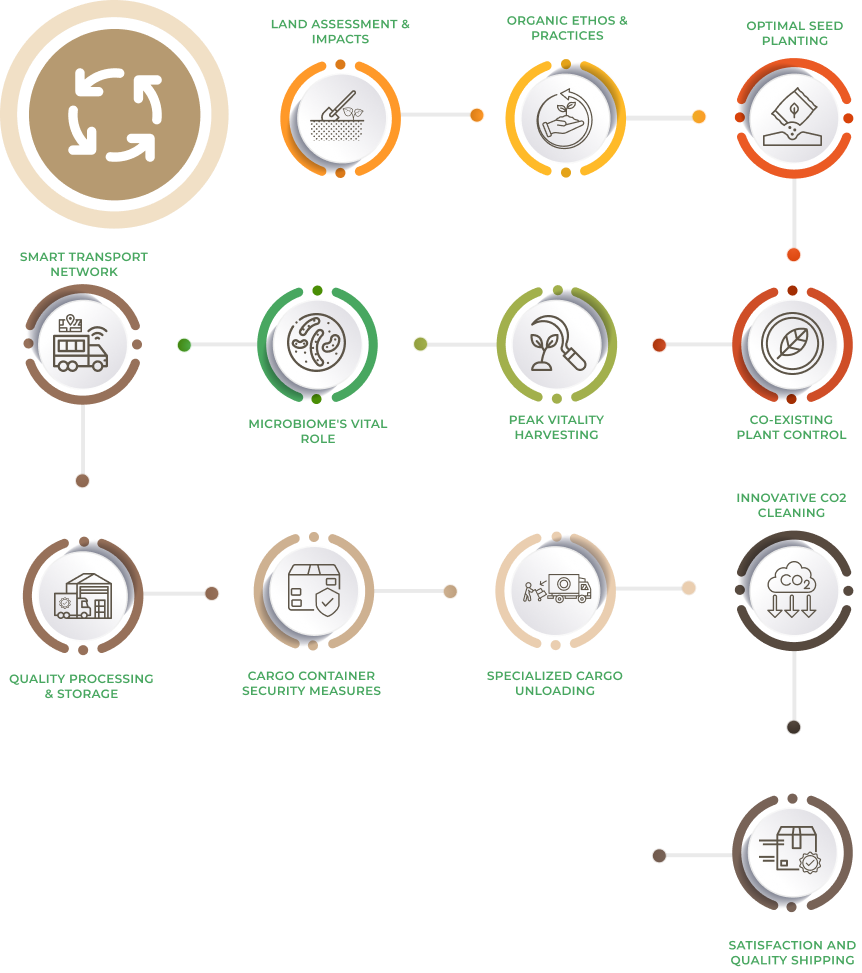
Transport Modes to Reach Balrampur
Balrampur districts of Uttar Pradesh State is a part of Devipatan division as well as the historic Awadh regions. Balrampur can be reached by various modes of transportation.

By Train
Balrampur has its own railway station which is well-connected to major cities in India like Delhi, Mumbai, Kolkata, and Lucknow. There are regular trains from Balrampur to other major cities in India.

By Road
Balrampur is well-connected by road to major cities in Uttar Pradesh and nearby states. National Highway 730 passes through Balrampur, making it easily accessible by road. One can also take a bus or hire a taxi from nearby cities like Lucknow, Gorakhpur, and Varanasi to reach Balrampur.

By Air
The nearest airport to Balrampur is Lucknow airport, which is approximately 185 km away. From Lucknow, one can hire a taxi or take a bus to reach Balrampur.

Places of Attraction in Balrampur
Shravasti
Located just 15 kilometers away from Balrampur, Shravasti is a famous Buddhist pilgrimage site. It is believed that Lord Buddha spent 24 rainy seasons here, and there are several ancient Buddhist sites to explore.
[/mvc_ihe]Devipatan Temple
Dedicated to the Hindu goddess Devi Patan, this temple is a popular pilgrimage spot for Hindus. It is believed to be one of the 51 Shaktipeeths and is located in Tulsipur, about 27 kilometers from Balrampur.
[/mvc_ihe]Sarai Mohana
This ancient fort is situated on the banks of the river Rapti and dates back to the 18th century. It is famous for its beautiful architecture and is a must-visit for history buffs.
[/mvc_ihe]Raja Jwala Prasad Bird Sanctuary
Spread over an area of 45 square kilometers, this sanctuary is home to a wide variety of birds and animals. It is a great place to explore for nature lovers.
[/mvc_ihe]Vankhandi Mahadev Temple
Another popular temple in the region, the Vankhandi Mahadev Temple is located in the Gonda district, about 30 kilometers from Balrampur. It is believed to be one of the most powerful Shiva temples in the region.
[/mvc_ihe]Kachhi Temple
This temple is located in Balrampur city and is dedicated to Lord Shiva. It is believed to be one of the oldest temples in the region and is known for its beautiful architecture.
[/mvc_ihe]

Elevation
It has an average elevation of 105 metres (344 ft).


River
The Rapti River’s flow has great seasonal variation because the river lacks sources in high elevation glaciers and snowfields to buffer pre-monsoon drought.


Soil
Major Soils found in the region are Loam Soils (Tarai Soils) mainly Sandy Loam and Clay Loam.
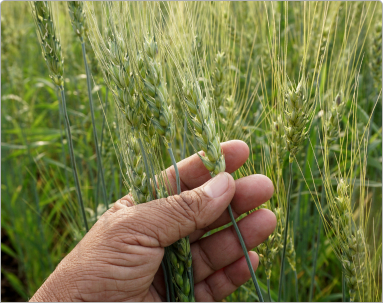

Crop
Balrampur is a lowland area where small lentil pulses are cultivated as cash crops. Five different types of small lentil varieties are found here.
Sustainability Efforts
Economic
Transforming Classrooms: Digitized Learning Spaces
|
|
1 | |
Illuminating Streets with Environment-Friendly Solar Lighting
100 | ||
Women's Empowerment through Entrepreneurial Training Programs
742 | ||
Empowering Young Women: Career Counseling for Future Success
|
|
567 | |
Craftsmanship Unleashed: Skill Development in Artisanal Handicrafts
|
|
454 | |
Social
Fostering Educational Partnerships: Village School Adoption Program
|
|
1 | |
Students Holistic Development
|
|
245 | |
Nourishing the Future: Workshop on Child Nutrition and Well-being
|
|
1300 | |
Guiding the Leaders of Tomorrow: Mentoring Programs for Students
|
|
1650 | |
Environmental
Cultivating the Earth: Advanced Training in Soil Regeneration
324 | ||
Towards a Plastic-Free Future: Comprehensive Reduce and Reuse Initiatives
1122 | ||
Preserving Our Lifeline: Campaigns for Water Conservation and Stewardship
122 | ||
Agriculture in Harmony with Nature: Organic Farming workshops
987 | ||
Clean Village, Healthy Village: Promoting Cleanliness and Sanitation at the Grassroots Level
986 | ||
Our Impact

Impact of our Farmers
Farmers employ various methods to enhance soil fertility, such as crop rotation, cover cropping, reduced tillage, and application of compost. By reducing fuel-intensive tillage, less soil organic matter is lost to the atmosphere, leading to carbon sequestration. This reduces greenhouse gases and helps to reverse climate change. Moreover, reduced tillage can improve soil structure and decrease the possibility of soil erosion.

Difference our People are Making
Our organization uses several processes such as converting land from conventional management to organic management, managing the entire surrounding system to ensure biodiversity and sustainability, and crop production with the use of alternative sources of nutrients such as crop rotation, residue management, and organic manures. We provide complete biological inputs to our crops.
We also manage weeds and pests through better management practices, physical and cultural means, and our teams supervise and manage these activities. This approach makes us an integral contributor to the cause of sustainability.

Contribution by our Customers
Consumers are becoming increasingly aware of food safety and environmental issues, and their concern for their own health, the environment, and worldwide crises has risen exponentially. Organic agriculture has always been a production option followed by a few farmers worldwide, but now it has become the only option for many consumers. Simply by consuming organic produce, consumers are contributing to the overall health of the planet and creating an impact.






